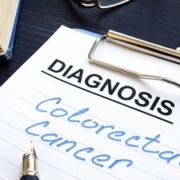How Can We Improve Access to Blood-Based Colorectal Cancer Screening?
In a recent blog post, Parker Lynch discussed the accuracy of blood-based colon screenings that are becoming increasingly popular in colorectal cancer (CRC) prevention efforts. The non-invasive nature of these tests has the potential to improve CRC screening rates in the general population, which is becoming increasingly necessary with the rise in early-onset CRC rates.
While these tests have high specificity and sensitivity, their newer status on the market raises questions about whether they will be covered by insurance plans for most Americans.
At the recent American Society of Clinical Oncology meeting, researchers presented their findings on a new multi-cancer detection test that utilizes only a blood sample for cancer screening. This test is groundbreaking in its ability to quickly and accurately provide positive test results for a broad spectrum of cancers. It will be essential to cancer prevention movements in the colorectal sphere and across the board.
While these new tests are groundbreaking for prevention efforts, ensuring that the population has equitable access to these tests will establish their validity as a public health tool. The much heralded Galleri multi-cancer detection test has a list price on the company website of $949 and states that most insurance plans do not cover it. Considering that a significant portion of Americans (40%) cannot afford to cover a $400 emergency bill, the Galleri test’s pricing and lack of coverage will create access barriers to the general American public.
Blood-based biomarker tests specifically for detecting CRC will be more easily accessible to the public, but still can be challenging to obtain. The Centers for Medicare & Medicaid Services, for example, will cover a blood-based biomarker test every three years, for an individual who is between 45 and 85 years old, asymptomatic, and at an average risk for developing CRC. This leaves out the early-onset population (<45 years), many of whom are diagnosed at an advanced stage and may benefit from a blood-based testing approach.
To advance health equity in CRC prevention and care, these innovative new tests must become more accessible through pricing and insurance coverage. When all individuals can access high-quality cancer prevention, regardless of income or socioeconomic status, we can protect the most vulnerable members of our population.
Emma Edwards is a Colorectal Cancer Prevention Intern with the Colon Cancer Foundation.






Leave a Reply
Want to join the discussion?Feel free to contribute!